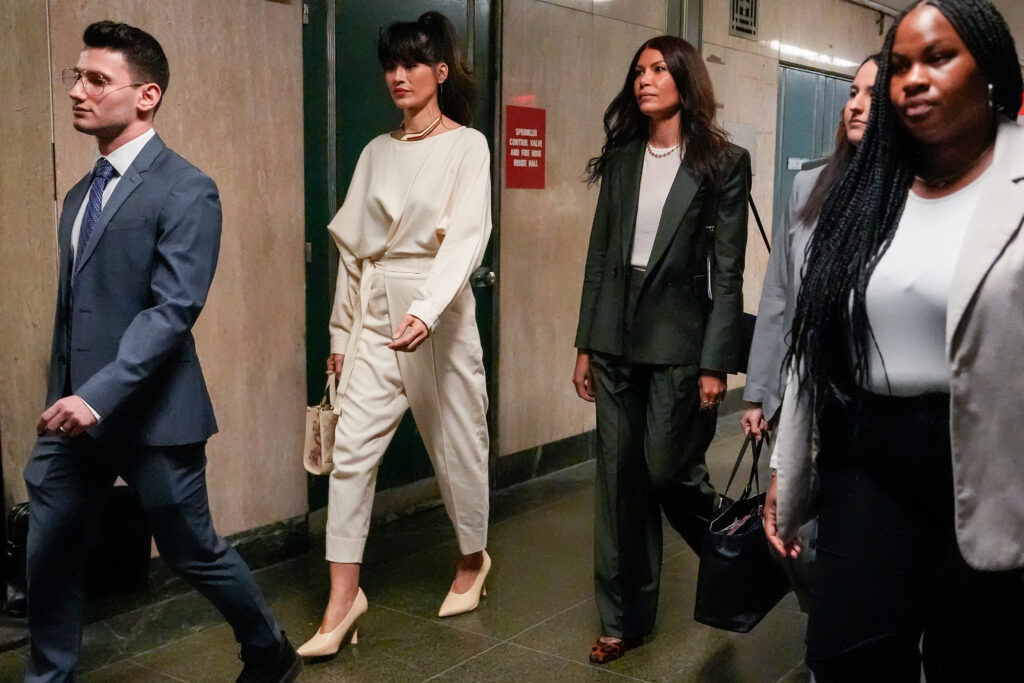Key Points Summary – Harvey Weinstein Trial
- Harvey Weinstein faces retrial five years after #MeToo conviction
- Prosecutors accuse him of using career promises to commit assaults
- Trial includes three accusers, with charges of rape and forced oral sex
- Jury makeup and courtroom atmosphere differ from 2020 trial
- Additional accusation added after first conviction overturned
- Prosecutors aim to focus on facts over #MeToo narrative
- Retrial seen as key moment for justice in sexual assault cases
Weinstein Back in Court for Explosive Retrial
Harvey Weinstein returned to court on Wednesday for a retrial that revisits the crimes at the center of the #MeToo movement. Five years after his original conviction, the former Hollywood mogul now faces three accusers and a new cultural climate.
Prosecutor Shannon Lucey wasted no time laying out the charges. She accused Weinstein of using his power to offer “dream opportunities” as bait for sexual assault. According to Lucey, he raped one woman and forced oral sex on two others.
Weinstein, now 73, appeared frail and sat in a wheelchair. He whispered with his lawyers and took notes but avoided eye contact with the jury. So far, his defense team has not addressed the panel.
Different Jury, Same Courthouse
The trial takes place in the same Manhattan courtroom as the 2020 trial. However, key elements have changed. The jury now consists of seven women and five men. A new judge is also presiding.
Two accusers from the first trial—Miriam Haley and Jessica Mann—are returning to testify. Both have gone public with their accusations. A third unnamed woman also joined the case, adding a new charge to the retrial.
This latest charge stems from an alleged assault at a Manhattan hotel in 2006. Prosecutors say the woman stepped forward just before the first trial but was not included in the original case.
Public Reaction Milder This Time
Unlike the 2020 trial, there were no crowds or protest chants during jury selection. That previous trial was marked by intense media coverage and public demonstrations.
Observers note that the courtroom atmosphere now feels more focused. The New York Court of Appeals threw out Weinstein’s original conviction last year, citing improper use of prior bad acts as evidence.

That reversal changed the legal strategy. Prosecutors now emphasize facts tied directly to charges, rather than leaning on the broader #MeToo themes.
Charges and Defense Strategy
Weinstein is charged with third-degree rape for allegedly assaulting Mann in 2013. He also faces two criminal sex act charges for assaults that occurred in 2006.
His attorneys argue that the trial should remain rooted in facts, not public opinion. Lead defense attorney Arthur Aidala said the trial “is not about #MeToo. It’s about what actually happened.”
Meanwhile, prosecutors are proceeding under the Manhattan DA’s Special Victims Division. They bring fresh legal muscle to a case already under intense scrutiny.
Cultural Shift Shapes New Proceedings
The retrial arrives at a different cultural moment. Public attention on #MeToo has cooled, but the stakes remain high.
Lawyer Lindsay Goldbrum, representing the unnamed accuser, called it a “pivotal moment” for victims of abuse. She says the retrial sends a message that speaking up can still lead to justice.
The outcome could shape future legal efforts involving high-profile abuse cases. It may also serve as a litmus test for how courts treat powerful defendants in the post-#MeToo era.
Legal Teams Adjust to New Terrain
Weinstein has enlisted new lawyers for this trial, including Jennifer Bonjean. She previously helped overturn Bill Cosby’s conviction and defended R. Kelly.
Her experience in controversial, high-profile sex crime cases could play a major role. However, the defense knows public sentiment won’t favor them.
Jurors who expressed strong opinions about #MeToo were dismissed during selection. Those who remained claimed they could remain impartial.
Verdict Could Set New Precedent
While Weinstein denies all charges, the retrial carries immense weight. A conviction would reaffirm the strength of victim testimony even under revised legal standards.
But an acquittal could reignite debate about the limits of #MeToo and the role of public influence in courtrooms. Either way, the outcome is bound to make headlines again.
For now, Weinstein remains out of the spotlight, but his fate once again rests in the hands of twelve New Yorkers.





